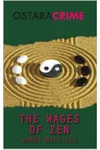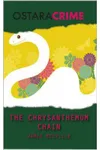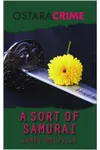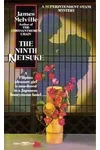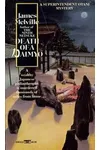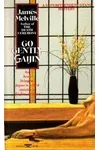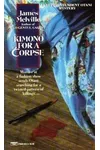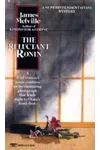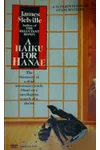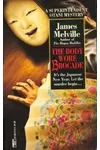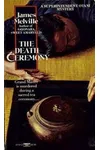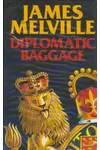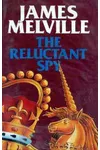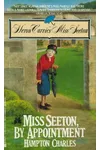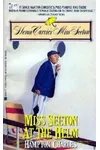Picture a British storyteller who turned Japan’s vibrant culture into thrilling detective tales—meet Roy Peter Martin, better known as James Melville and Hampton Charles! With a knack for blending historical depth and cozy mysteries, Martin crafted stories that whisk readers from Kobe’s bustling streets to quaint English villages. His pseudonyms reflect his versatility, each unveiling a unique storytelling flavor.
Born in London in 1931, Martin’s life was a tapestry of philosophy, diplomacy, and crime fiction. His fascination with Japan shaped his legacy, making him a cultural bridge through his beloved Otani series and charming Miss Seeton novels. Ready to dive into his world?
The Making of James Melville / Hampton Charles
Roy Peter Martin’s journey began in London, where he studied philosophy at Birkbeck College before serving in the Royal Air Force. His career took a vibrant turn when he joined the British Council, landing in Japan in the 1960s. Immersed in Tokyo and Kyoto, Martin fell in love with Japanese culture, an influence that would define his writing. A curious incident—being summoned to identify a misidentified corpse—sparked his passion for crime fiction, planting the seeds for his detective tales.
Back in London, Martin adopted the pseudonym James Melville, blending his sons’ names, and began crafting mysteries. As Hampton Charles, he later embraced the quirky Miss Seeton series, proving his storytelling range. His diplomatic adventures gave his work an authentic edge, blending East and West with effortless charm.
James Melville / Hampton Charles’s Unforgettable Stories
As James Melville, Martin created the Superintendent Tetsuo Otani series, starting with The Wages of Zen (1979). Set in Kobe, this 13-novel saga follows Otani, a sharp yet relatable police chief, unraveling crimes amid cultural clashes. From The Chrysanthemum Chain’s intricate political intrigue to A Sort of Samurai’s exploration of tradition, each book paints modern Japan with humor and realism.
Under Hampton Charles, Martin penned three Miss Seeton novels, including Miss Seeton, By Appointment (1990). These cozy mysteries feature the umbrella-wielding, retired art teacher Miss Seeton, whose knack for stumbling into crime scenes delights readers. Martin’s light touch and vivid characters make these stories irresistible escapes.
Martin’s style shines in his ability to weave cultural nuance into gripping plots. His Otani series balances humor and insight, earning comparisons to Georges Simenon, while his Miss Seeton tales exude British whimsy. He also explored historical fiction with The Imperial Way (1986), inspired by Japan’s 1936 coup, and penned a nonfiction gem, The Chrysanthemum Throne (1997), celebrating Japan’s imperial history.
Why James Melville / Hampton Charles Matters
Martin’s work transcends genre, offering a window into Japan’s soul during a time of rapid change. His Otani series introduced Western readers to Japanese society, blending respect for tradition with modern dilemmas. His Miss Seeton novels, meanwhile, keep the cozy mystery flame alive, proving his versatility. By 2014, when Martin passed, his 13 detective novels and historical works had cemented his legacy as a cultural storyteller.
His influence lingers in how he humanized cross-cultural narratives, making Japan accessible and enchanting. Fans still cherish his ability to craft mysteries that feel like a warm conversation with a worldly friend.
- Born: January 5, 1931, London, England
- Key Works: The Wages of Zen, Miss Seeton, By Appointment, The Imperial Way
- Pseudonyms: James Melville, Hampton Charles
- Notable: Authored Japanese Cooking with his wife, Joan
Snag The Wages of Zen or Miss Seeton, By Appointment and dive into Martin’s captivating blend of mystery and culture!
